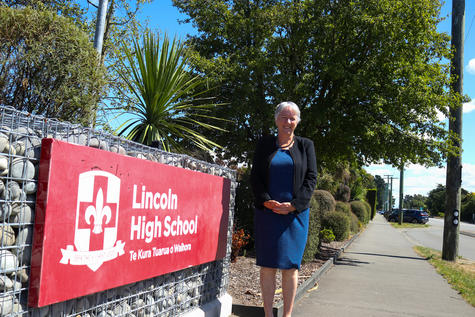
Kathy Paterson started her career younger than most, aged four to be precise, teaching teddy bears.
“It was back in the day when I had teddies lined up teaching them to read and do school rolls and I always never ever wavered and always wanted to be a teacher,” Paterson said.
From teaching teddy bears, she improved by stepping up to teach her family.
“So, whether it was my cousins or my sister, helping people with their own learning has been a passion.”
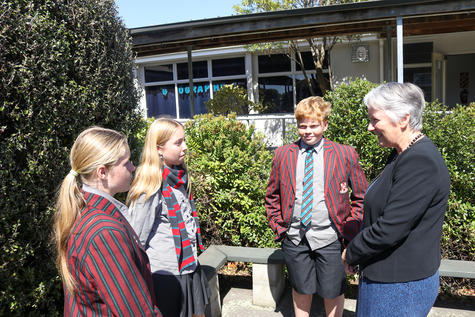
“I’ve always loved teaching maths and puzzle solving.”
After Logan Park, she taught at one other school in Dunedin, before four in Hamilton, the last of which was Hamilton Girls’ High School.
Paterson will be leaving her Lincoln role at the end of term two in April and heading for retirement.
“I’ve been in education a very long time and it’s just time to do something different for me.
“It will be bittersweet really. Principalship is a very full-on job. You really immerse yourself in the school, staff and community and it will be quite a change for me not having that busyness in my day.
“I’ll have so much time I won’t know what to do.”
Cashmere High School deputy principal Adrian Fastier will replace her. He said he was excited about the role.
“I am very much looking forward to joining the Lincoln community and continuing to build on the fantastic contribution Lincoln High School makes to the local area and its people,” Fastier said.
“My priority is taking the time to get to know the students, staff, and the community; and understand how I can best contribute towards the school being both a great place to learn and a great place to teach.”
When Paterson started at Lincoln, the school had a roll of 1350 students which increased to a peak of 1750 before Rolleston College opened. Its current role is 1400. She said the shifts in the roll have been one of her biggest challenges.
“The roll changes have been quite challenging. So, the roll going up and down and managing staff and students, when you’ve got 1750 students on a site that’s built for 1400 there are pressure points everywhere, so behaviour declines and that’s very challenging.
“The ministry prediction when I came in 2013 was for the school to be about 950 now, so things have certainly not panned out that way.”
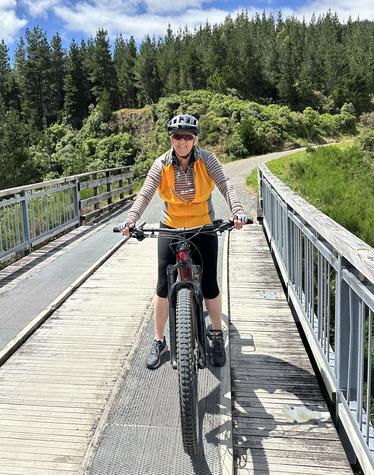
“I think that’s the piece that’s kept me in education is that I’ve really embraced change and really looked at what’s next and looked to the future.
“It’s nice to have been able to lead some of those changes and lead them for what you believe are the right reasons as well.”
In 2018 she allowed students the freedom to grow beards, have piercings or dye their hair. Reflecting now, Paterson said the shift has caused no issues at the school.
“The facial hair was a really good example of where we take student voice, we review it, we take it to the board, the student did a presentation and over that time I actually changed my views on facial hair.
“It was really good to change your perspective and understand where they were coming from, and in fact, facial hair is a complete non-issue and has been since we made it okay.”
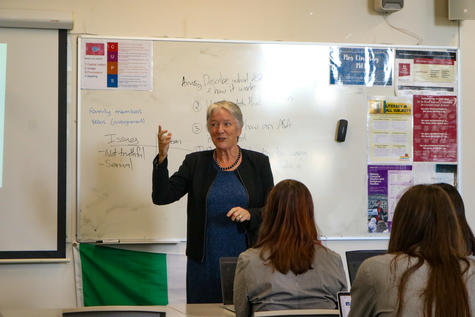
“With our move away from NCEA level one, we’ve had many schools from up and down the country coming to visit and to hear our story, and some of them have taken that and decided it’s the right thing for them.”
In 2018 the school moved away from NCEA level one, instead focusing on a two-year NCEA level two.
Recently there has been a big push from the Government to raise school standards and attendance, in a “back to basics” curriculum. While Paterson would not be drawn on the direction of the Government, she said students have been through three years of challenge.
“From my perspective Covid created three years of challenge, the earthquakes and the mosque attacks in Christchurch created further challenges and then you put on top of all that industrial action last year.
“So, all up students have had quite a muddled time, so therefore things like attendance will drop, things like engagement will drop. We haven’t seen it as badly at Lincoln as other schools may have experienced.”
Paterson said the curriculum has changed rather than the quality of students getting worse.
“If I go back to when I started teaching, some of the things I would have taught a year 11 are now being taught in year 13 or the first year of university.
“So, I think the curriculum has changed a lot and some of the things weren’t needed at year 11 for example.”
Another worry is teacher supply.
“Teacher supply is a huge concern I’ve always struggled in some learning areas to appoint people, just because of lack of applicants. That is a huge worry and I don’t see that improving in the near future.”
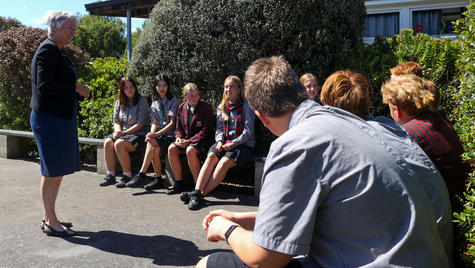
In April, Paterson is hoping to see the first of a five-stage rebuild get under way.
“It’s been a very long time, and the buildings are old.
“The ministry (of education) has allowed us to dream big in the master plan and create an education brief for the buildings, but the reality is they don’t have the bank balance to support it.”
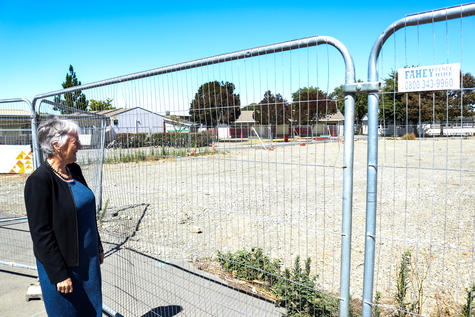
“I do enjoy golf, don’t get to play very much but that’s what I’m looking forward to doing after I finish here, and we’ve really enjoyed biking over the years . . . so we do enjoy trails around New Zealand.”
She also hopes to spend time with her family including her four grandchildren.
Her parting message to the school community: “Just be prepared to embrace change and work together, collaborate, and support each other, looking out for each other I think it vital going forward just those little how are your comments that allow people to share where they’re at.”













